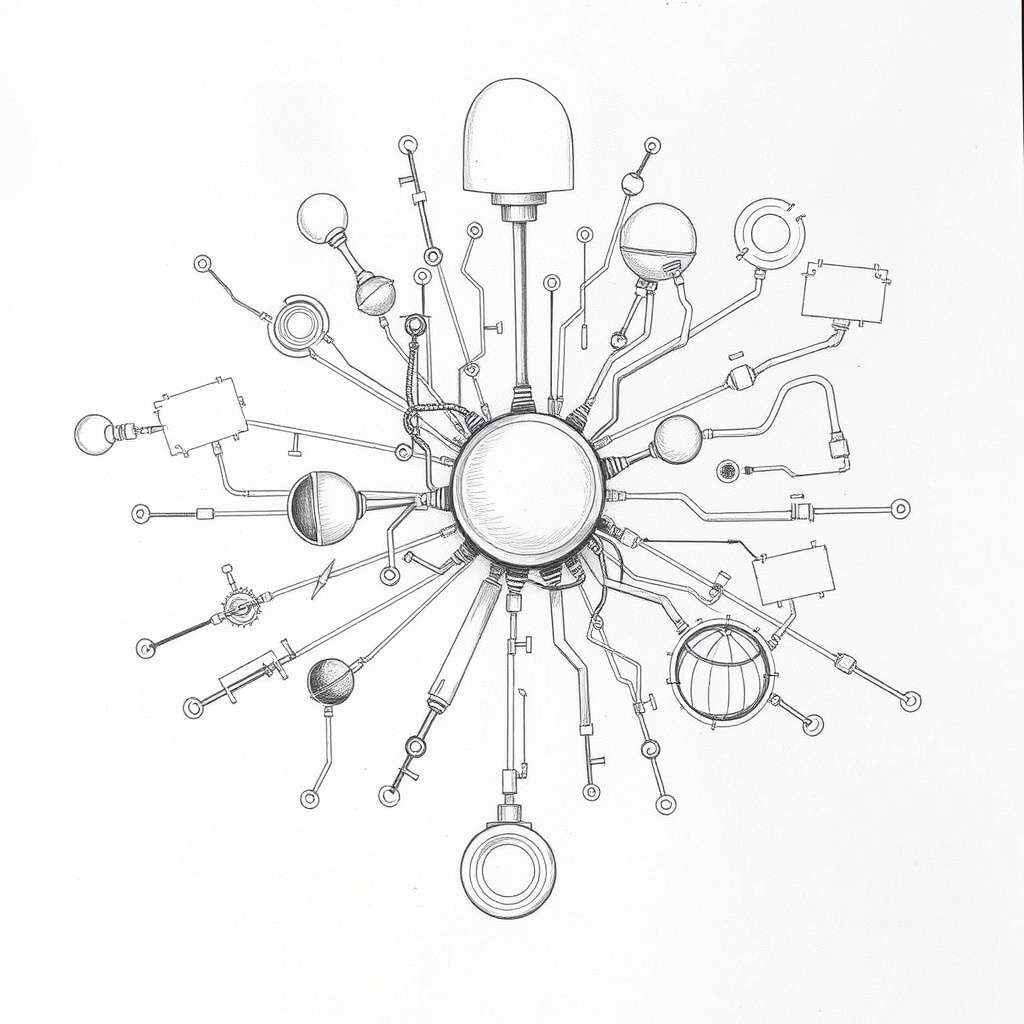Designing the Future with System Thinking: From Vision to Scenarios
1. System Thinking
- Principle: See the whole, not just parts.
- Core Tools: Feedback loops, delays, leverage points, boundaries.
- Mindset Shift: From linear cause–effect to dynamic interdependencies.
2. System Design
- Goal: Shape purposeful systems that deliver thriving results.
- Steps:
- Define purpose & boundaries
- Map stakeholders & interconnections
- Identify leverage points
- Design adaptive mechanisms (self-correcting, self-learning)
- Align metrics with long-term sustainability (ROICE: Return on Innovation, Convenience, Efficiency)
3. System Applications
- Business: Asset-Light BaaS, AI-powered ecosystems, sustainable value chains.
- Health: Preventive health systems, personalized care loops, health-data ecosystems.
- Geopolitics: Resilient governance, subsidiarity, citizen-powered counterweights.
- Sustainability: Circular economy, regenerative energy systems, ESG-driven finance.
4. System Scenarios
- Baseline 2025 → Futures 2035–2040
- Scenario A: Thriving Ecosystem
→ AI-driven circular economy, resilience, citizen empowerment. - Scenario B: Controlled Efficiency
→ Tech monopolies + centralized governance, high efficiency but low freedom. - Scenario C: Fragmented Collapse
→ Climate shocks, geopolitical rivalries, weak institutions. - Scenario D: Balanced Transition
→ Gradual shift to sustainable, distributed systems balancing innovation with regulation.
- Scenario A: Thriving Ecosystem
5. Strategic Implications
- Leaders must design adaptive, learning systems.
- Organizations must simulate scenarios before making large-scale decisions.
- Citizens must recognize leverage points (energy, finance, governance) to shape futures.
💡 Power Statement:
“The future is not predicted, it is designed. System Thinking provides the lens, System Design provides the structure, and System Applications bring it alive in scenarios we can shape today.” – Josef David
🌍 Designing the Future with System Thinking
From System Thinking ➝ System Design ➝ System Applications ➝ Future Scenarios
Scenario A: Thriving Ecosystem
Scenario B: Controlled Efficiency
Scenario C: Fragmented Collapse
Scenario D: Balanced Transition
RapidKnowHow + ChatGPT | All Rights Reserved
💡 Power Statement:
“The future is not predicted, it is designed. System Thinking provides the lens, System Design provides the structure, and System Applications bring it alive in scenarios we can shape today.” – Josef David

Leaders Designing Adaptive, Learning Systems
30 Learning Systems from Business, Politics, and Life 2025–2030
Structured, strategic, and ready for expansion into a full PowerBook.
📘 PowerBook Outline
Leaders Designing Adaptive, Learning Systems (2025–2030)
30 Learning Systems from Business, Politics, and Life
RapidKnowHow + ChatGPT | All Rights Reserved 2025
INTRODUCTION
From Control to Learning: The Leadership Shift 2025–2030
- Why systems—not individuals—will determine competitive advantage.
- The rise of adaptive learning loops (Observe → Learn → Adapt).
- Role of leaders: designers of environments, not controllers of people.
- How Business, Politics, and Life require parallel learning architectures.
PART I — BUSINESS: 12 Learning Systems
Ecosystems That Learn Faster Than Markets Change
1. AI-Augmented Decision System
Continuous feedback + predictive learning in management decisions.
2. Real-Time Supply Chain Learning Loop
Data + demand + disruption → instant adjustment.
3. Customer Insight Learning System
Behavioral signals → product adaptation → retention.
4. Business Model Evolution Loop
Testing → measurement → pivoting → scaling.
5. Innovation Sprint Learning Architecture
Rapid experimentation → learning cycles → implementation.
6. Sales Learning Engine
Micro-feedback from customers → optimized value messaging.
7. Workforce Upskilling Learning System
On-demand, AI-personalized skill loops.
8. Sustainability Learning System (ESG+)
Environmental + social + governance data informs decisions.
9. Product Lifecycle Learning System
Usage → performance → improvement → relaunch.
10. Crisis Response Learning Loop
Detect → stabilise → learn → strengthen.
11. Culture-as-a-System (CAS) Learning Model
Values + behaviors → feedback → adaptive norms.
12. Partner Ecosystem Learning System
Networks share intelligence → exponential improvement.
PART II — POLITICS: 10 Learning Systems
Governance That Learns With Citizens, Not Against Them
13. Democratic Feedback Learning System
Continuous citizen insights → adaptive governance.
14. Societal Early Warning Learning Loop
Detects social tension, extremism, inequality trends.
15. Public Health Learning Ecosystem
Patterns → prevention → rapid adaptation.
16. Economic Shock Learning System
Markets + labor data → agile policy adjustment.
17. Civic Engagement Learning Model
Citizens as co-learners → co-design of solutions.
18. Regulatory Innovation Learning Loop
Test → monitor → refine → roll-out.
19. Public Integrity Learning System
Transparency → detection of corruption → institutional learning.
20. Energy Transition Learning Ecosystem
Technology + consumption → adaptive policy pathways.
21. Security & Defence Learning Architecture
Threat signals → strategic adaptation loops.
22. Migration & Integration Learning System
Feedback from local communities → dynamic policy evolution.
PART III — LIFE: 8 Learning Systems
Individuals as Adaptive, Self-Renewing Systems
23. Personal Insight Learning System
Reflection → habit correction → progress loops.
24. Emotional Regulation Learning Loop
Triggers → awareness → response learning.
25. Health-as-a-System Renewal Model
Exercise + sleep + nutrition feedback → optimized living.
26. Financial Learning Ecosystem
Income → spending → saving → investing.
27. Relationship Learning Model
Communication feedback → understanding → trust.
28. Career Adaptive Learning System
Skill maps → job signals → learning sprints.
29. Purpose & Meaning Learning Loop
Values → action → reflection → alignment.
30. Life Strategy Learning Architecture
Long-term scenario thinking as daily practice.
CONCLUSION
A New Leadership Paradigm: Designing Systems That Learn At Scale
- The future belongs to adaptive system architects, not administrators.
- How AI accelerates system learning across all domains.
- The 30 models as a foundation for RapidKnowHow Licensing & Ecosystem Development.





